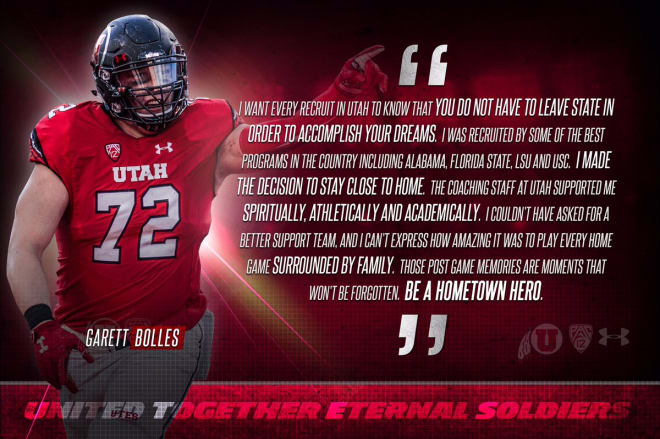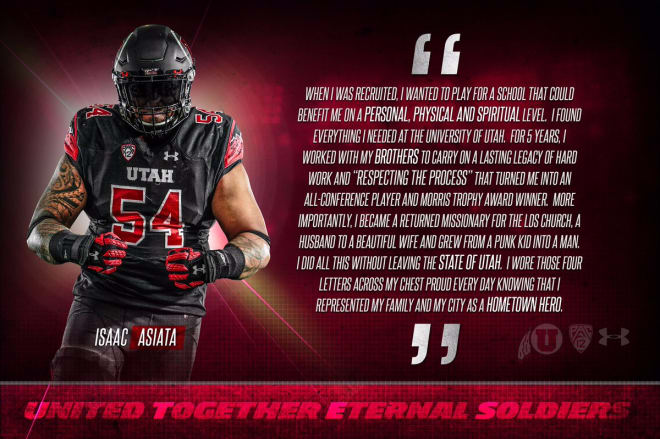Statistically Speaking: #HometownHero
There are a lot of great reasons to be a #HometownHero, and most of them can't be captured by a number- having your family and friends attend your games, being beloved and deeply appreciated by your community, and staying close to the comforts of homes are among them. There are some questions worth answering with numbers, though.
This week, Utes who were headed to the NFL draft posted compelling stories to Twitter about why they had chosen the University of Utah and why it had been the right choice for them. Among them were "Hometown Heroes," Garett Bolles and Isaac Asiata. They had a lot to say about the Utes and their decision to stay close to home. (see graphics provided by the University of Utah)


Of particular interest is Garrett Bolles' assertion that an elite, heavily-recruited athlete can do just as well going to Utah as to schools like Michigan, Stanford, or Ohio State. This is a question we can put to the test.
I used the Rivals database to compile a list of every three-star or better high school recruit from the state of Utah, 154 individuals in all. Then, I measured their performance in a number of critical categories both at the college and pro level:
1. Number of years they participated in at least half of the regular season games
2. Number of years they started at least half of the regular season games
3. Whether or not they earned awards (including All-Conference, All-American, and position awards like Asiata's Morris Trophy)
4. Whether they were drafted and at what spot
5. The number of NFL seasons they made a roster (if any)
6. The number of NFL seasons they made the pro-bowl
7. Their NFL weighted career average value, the best way to compare players of different positions and eras
This analysis shows that Garett Bolles' statement is spot on. Players who stayed in Utah and who have completed their NCAA careers were just as likely to go to the NFL as players who left the state, and slightly more likely to earn conference and positional awards. They also tended to contribute and start at a slightly higher level- on average, a #HometownHero contributes for 1.65 seasons and starts for .85 seasons. That's slightly better than those who left the state: 1.6 seasons of contributing and .7 seasons of starting.
These differences are either within or close to the margin of error, suggesting that these players are making their own destiny- there isn't an upside to playing time, publicity, or NFL development that you gain from leaving the state to go to a 'bigger name' school. Just as Bolles said, the opportunities afforded to players by the excellent coaching staff at the University of Utah give them everything they need to achieve their maximum potential.
The draw of being a #HometownHero is compelling. Instead of being lost in a mass of 85 scholarships that all mean the same thing to the fans of your team, you become a special part of the team and the community, tying yourself to the history of your high school and the University you grew up rooting for. It's a unique opportunity that becomes all the more exciting when a recruit realizes it doesn't cost them a shot at the highest level of achievement.
